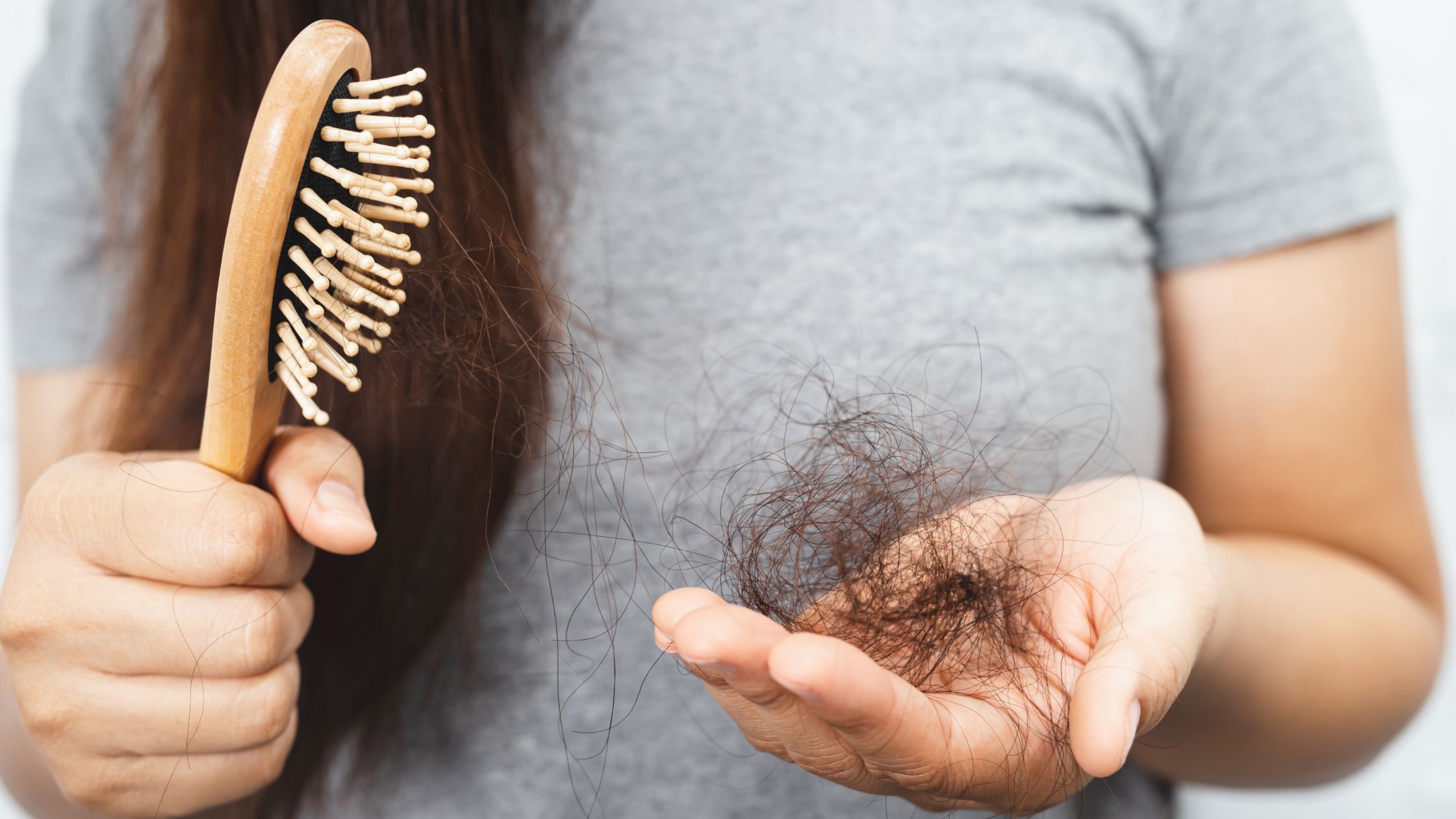
06 Dec What is considered excessive hair loss? By a Trichologist
This is by far the most common questioned I get asked.
It’s easy to get worried when you are pulling hair from your hair brush after brushing your hair, but it’s not always something to get worried about. In this article, I will share with you what you need to know about our normal shedding and when it’s time to do something about it.
The cycle of our hair
The hair growth cycle has a set amount of time it will stay on your scalp. This phase is called the Anagen Phase or Growing Phase. It’s approximately 1000 days and can vary from person to person. That’s anything from 2 to 5 years.
After the hair has completed its growing phase, it transitions into a regressing phase and then a shedding phase. All these have their own time scales.
This basically means each strand of your hair has a life span which comes to a natural end and leaves the scalp. It’s normal for us to shed about 100 hairs a day, and we class anything above this as excessive hair loss.
How to tell if your hair loss is normal or excessive?
If you are seeing more hair on your clothes than normal and more than a small handful in the plug hole after washing your hair, then it could be considered excessive. You can also tell by feeling your hair. You know how much hair is normal in thickness on your scalp. If it feels less to you, then that is a good indicator that you have excessive hair loss.
The name for this type of loss is Telogen Effluvium. There are different sub-types such as Chronic, Acute and Reflective which you would need a trichologist to diagnose and categorise. A trichologist could also work with you to uncover the reasons behind your hair loss and work out the length of time you have been experiencing this loss.
If you have Telogen Effluvium, this does not mean you will lose all your hair, but if you do not understand and treat the problem which has caused this, it can continue to fall in this high rate indefinitely.
I would not recommend you self-diagnose, as a trichologist I would not try to self-diagnosis myself. I may suspect or even be 90% sure of the problem, however you become bias and I would always recommend asking a professional to confirm what you may think is the cause. I would seek the opinion of a fellow trichologist to confirm for me.
The areas which are likely to be responsible for this type of hair loss are certain medications, an unknown underlying cause, poor nutrition or malnutrition, changes in the sex hormones both at puberty or menopause. Hair loss has wrongly been associated with menopause. The menopause per se does not cause the problem – it purely means that the changes in the body have upset one of the other functions. I don’t believe we have to lose excessive amounts of hair during this time.
The good news is, Telogen Effluvium is easily treated and is recoverable.
Childbirth and hair loss
Hair loss after Childbirth is sometimes classed as Telogen Effluvium. It’s actually known as post-partum alopecia and it’s directly linked to the pregnancy and childbirth. It’s because of the mother’s hair being thicker than normal during pregnancy and the three months after childbirth and the acute loss after. The hair loss can become excessive in shedding, leaving fine short hairs seen at the temples. Most mothers will notice this hair will regrow and return to normal within 6-9months.
What people will forget is that during pregnancy, the mother’s hair would have been thicker than normal as the anagen phase is prolonged because of the pregnancy hormones.
Stress and hair loss
Stress can also affect hair loss. Because we do not know what is going on, half the treatment of hair loss requires finding out why? Followed by being able to manage and treat the hair loss.
Be aware that we can link extreme stress to permanent hair loss conditions as it can cause trigger inflammation in the body.
Reducing your stress levels and reducing and managing anxiety is the best place to begin if you are experiencing an excessive hair shedding.
If you are at all concerned about your hair loss, get in touch for a consultation and treatment plan.

Sorry, the comment form is closed at this time.